Geography
Intent
At Little Waltham C.E.V.A. Primary School, our geography curriculum is designed to inspire curiosity and fascination about the world. Through studying diverse places, environments and cultures, pupils develop a deep understanding of the Earth’s physical and human processes and how these interact to shape the world around us. Our vision, “Aspiring to inspire others towards excellence,” and our Christian values of compassion, courage, forgiveness and perseverance guide our teaching of geography, enabling pupils to reflect on their responsibility to care for God’s creation and make positive contributions to the world they live in.
Our geography curriculum has a strong moral purpose. Each unit begins with a Bible verse that encourages reflection on our duty to look after the planet, to understand the challenges faced by communities around the world, and to act with compassion towards others. Pupils explore moral and ethical questions such as climate change, sustainability, fair trade, and access to resources. These themes develop pupils’ sense of justice and global responsibility, linking directly to our Christian ethos and commitment to courageous advocacy.
We believe that every child has the potential to succeed in geography. The curriculum is ambitious, well-sequenced and accessible to all. Pupils build their knowledge and understanding through carefully structured units that progress from local to global contexts. From learning about their own village in Key Stage 1 to exploring global biomes, ecosystems and trade in Key Stage 2, pupils develop a growing awareness of their place in the world. Through purposeful teaching and engaging fieldwork opportunities, every child has the chance to achieve success and enjoyment in their geographical learning.
Geography also plays a key role in building character. Pupils are encouraged to be inquisitive, observant and reflective, developing a sense of wonder for the world around them. They learn to work collaboratively, question assumptions and appreciate different perspectives. Through local studies and global comparisons, pupils develop empathy for others and a deeper appreciation of diversity. They learn perseverance when analysing maps and data, and courage when debating environmental and ethical issues, developing as responsible citizens who can make a difference.
Our geography curriculum prepares pupils for the future by equipping them with the knowledge, skills and understanding they need to thrive in an ever-changing world. Pupils learn to interpret and analyse geographical data, use maps and digital tools confidently, and communicate their ideas. They are taught to recognise the impact of human choices on the planet and to think critically about sustainable living. Geography at Little Waltham ensures pupils leave with a strong sense of global citizenship, a moral awareness of their role in protecting the environment, and the curiosity to continue exploring the world.
Implementation
Geography is taught through a carefully planned and progressive curriculum that builds knowledge and skills year on year. Each unit begins with an overarching question that provides a clear focus for enquiry and ends with reflection to consolidate learning. Pupils are guided to explore and investigate geographical concepts through fieldwork, map work, research, and first-hand observation, developing both their understanding and their curiosity about the world.
Lessons are designed to balance substantive knowledge (understanding places, environments and processes) with disciplinary skills (asking questions, collecting evidence and drawing conclusions). Pupils regularly use maps, atlases, globes and digital mapping tools to locate and compare places, interpret data, and make connections between physical and human geography. Key vocabulary is explicitly taught to enable pupils to describe and explain geographical patterns and processes with precision and confidence.
Each unit includes a Bible verse to promote moral reflection and a spiritual connection to the topic. Pupils consider how Christian values such as stewardship and compassion relate to issues of sustainability, migration, and climate change. Cross-curricular links are made with science, art and PSHE, enriching pupils’ understanding of the natural world and their responsibility within it.
Fieldwork is an essential element of geography teaching at Little Waltham. Pupils investigate their local environment through visits to the school grounds, local rivers and the village, applying geographical enquiry skills to real-life contexts. As pupils move through the school, fieldwork broadens to include studies of contrasting regions and global locations. Enrichment experiences such as visits to the Chatham Green Wilderness Foundation, investigations of coasts and climate change, and environmental studies within our forest school area allow pupils to apply their learning practically and meaningfully.
Assessment is ongoing throughout each unit and linked to enquiry questions that encourage pupils to think deeply and critically. At the end of each unit, pupils revisit the overarching question, summarising their understanding and discussing how their thinking has developed. Teachers use these reflections, alongside written and practical outcomes, to assess pupils’ knowledge, understanding and geographical skills in line with age-related expectations.
Impact
By the time pupils leave Little Waltham, they have developed a rich understanding of the world and their place within it. They can identify key geographical features, explain how natural and human processes shape the Earth, and describe the similarities and differences between diverse places and cultures. Pupils confidently use geographical vocabulary and techniques to investigate and explain the world around them, applying their knowledge to real-world issues such as sustainability, conservation and global inequality.
Through studying geography, pupils learn to value the planet and recognise their responsibility to care for it. They develop empathy for people living in different parts of the world and understand how local actions can have global effects. Pupils are encouraged to act as courageous advocates, reflecting on how they can make a difference—whether through conserving resources, raising awareness of environmental challenges, or supporting sustainable practices within their community.
The impact of geography at Little Waltham is evident in pupils who are curious, reflective and morally aware. They leave our school with a secure foundation of geographical knowledge, the ability to think critically about global issues, and the character to act with compassion, courage and integrity in shaping a better future for all.






